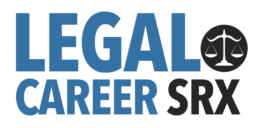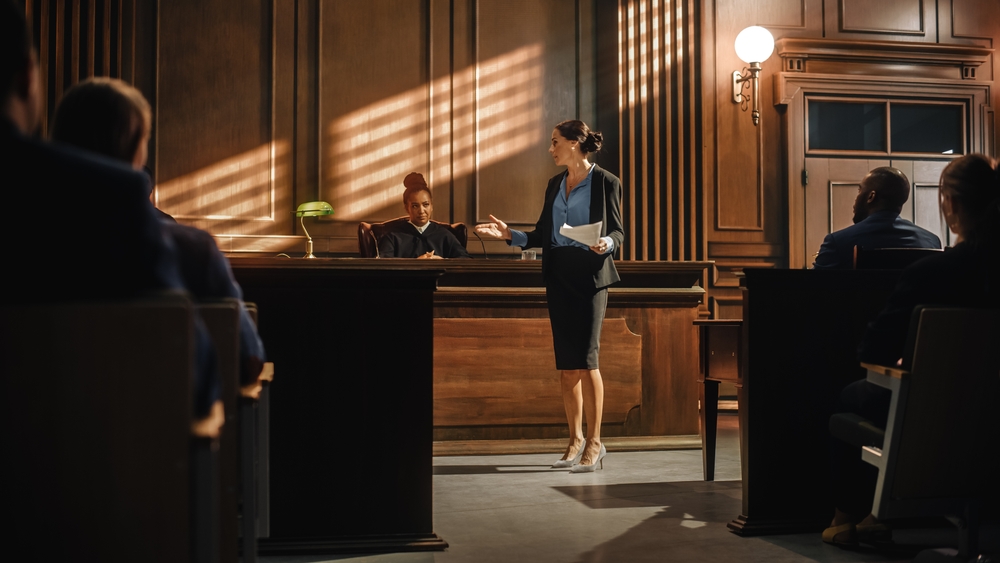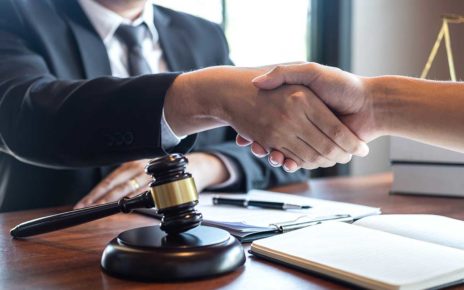Familiarizing Yourself with Relevant Laws
A foundational step in strengthening your position in lawsuit claims is to thoroughly understand the legal framework that governs your case. This involves a meticulous review of statutes, regulations, and ordinances that may impact the outcome of your litigation.
Key actions include:
- Researching the specific laws that are applicable to your case, which may vary depending on the jurisdiction and the nature of the dispute.
- Analyzing any amendments or updates to legislation that could influence your claim’s validity or the potential remedies available.
- Consulting legal databases and resources to ensure a comprehensive understanding of the legal environment.
This initial groundwork lays the cornerstone for developing a robust legal strategy and can significantly influence the direction and success of your lawsuit.
Identifying Precedent Cases
In the realm of legal disputes, the identification of precedent cases is a pivotal step in fortifying a lawsuit claim. Precedent cases, or previously adjudicated cases that bear similarities to the current claim, serve as a guiding beacon for courts when making decisions. They provide a framework within which a claim’s strengths can be gauged and its arguments refined.
To effectively identify relevant precedents, one must:
- Conduct thorough legal research to uncover cases with outcomes that align with the desired result of the current claim.
- Analyze the legal reasoning and principles applied in those cases to understand how they may influence the present case.
- Evaluate the jurisdictions of the precedent cases to ensure their applicability, as legal precedents can vary significantly across different courts.
Understanding the nuances of precedent cases equips litigants with the foresight to anticipate potential challenges and tailor their legal strategies accordingly. It is a meticulous process that requires a keen eye for detail and an understanding of legal history. By leveraging the outcomes of past cases, litigants can strengthen their position and present a more persuasive argument to the court.
Assessing the Strength of Your Claim
To accurately assess the strength of a lawsuit claim, one must undertake a thorough analysis of the facts and the applicable law. This process begins with a critical evaluation of the evidence at hand, considering both its quality and its relevance to the case.
Key factors to consider include:
- The clarity and consistency of the factual narrative.
- The credibility and reliability of witnesses.
- The existence and strength of documentary and digital evidence.
- The potential for expert testimony to corroborate the claim.
An objective assessment also involves anticipating the arguments and defenses of the opposing party. Understanding their likely strategies can help in identifying any weaknesses in one’s own claim and in developing counterarguments. It is crucial to be realistic about the chances of success, as this will inform decisions about whether to settle or proceed to trial. Legal counsel plays a vital role in this evaluation, providing an experienced perspective on the likelihood of a favorable outcome.
Building a Strong Case
Gathering and Preserving Evidence
The foundation of a strong legal case is the evidence that supports it. Parties involved in litigation must be diligent in collecting all relevant information that can substantiate their claims or defenses. This process involves several critical steps:
- Documentation: Secure all physical documents and electronic records that pertain to the case. This includes contracts, correspondence, photographs, and any other material that can serve as proof.
- Witnesses: Identify potential witnesses who can provide testimony that corroborates your account of events. Obtain statements and contact information as soon as possible.
- Preservation Letters: Send out preservation letters to prevent the destruction or alteration of evidence by other parties involved in the dispute.
- Chain of Custody: Maintain a clear chain of custody for all evidence to ensure its integrity. This means keeping a detailed record of who has handled the evidence and when.
It is essential to act swiftly to secure evidence before it is lost or destroyed. In some cases, engaging a professional to collect and preserve digital evidence may be necessary, especially when dealing with complex data or to ensure the admissibility of evidence in court. Remember, the quality and availability of evidence can significantly influence the outcome of a lawsuit.
Working with Expert Witnesses
In the realm of legal disputes, the testimony of expert witnesses can be pivotal in establishing the credibility and strength of a case. These individuals bring specialized knowledge to the table, which can clarify complex issues and provide the court with a professional perspective that goes beyond common knowledge.
Selecting the right expert witness involves several key considerations:
- Expertise in the relevant field: The witness should have a proven track record and recognized authority in the specific area related to the case.
- Experience with legal proceedings: An expert who is familiar with the dynamics of a courtroom and the process of giving testimony can be more effective.
- Objectivity and credibility: The witness must be perceived as unbiased and trustworthy to be persuasive.
Once an expert is on board, it is crucial to work closely with them to ensure their findings and testimony align with the overall strategy of the case. This collaboration includes:
- Preparing the expert for deposition and trial testimony.
- Reviewing and understanding their reports and how they support the case.
- Ensuring their testimony is accessible and comprehensible to a lay audience.
Ultimately, the integration of an expert witness into the legal team can significantly enhance the case’s persuasiveness, potentially influencing the outcome in favor of the client.
Crafting a Compelling Narrative
In the realm of legal disputes, the power of storytelling cannot be underestimated. A compelling narrative can resonate with the jury and judge, making your case more persuasive. It involves presenting the facts in a coherent and emotionally engaging manner that highlights the justice and legitimacy of your claim.
To craft such a narrative, consider the following steps:
- Start by establishing a clear and logical sequence of events that led to the legal issue.
- Highlight the human element by sharing the personal impact of the incident on your life or business.
- Use vivid language and, if possible, visual aids to make the story more relatable and memorable.
- Anticipate counterarguments and integrate responses within the narrative to reinforce your position.
Remember, the goal is to create a narrative that not only conveys the facts but also evokes a sense of fairness and urgency for resolution. It’s a strategic way to ensure that the essence of your lawsuit is understood and felt by those who have the power to decide its outcome.
Effective Legal Representation
Choosing the Right Attorney
Selecting the right attorney is a pivotal step in fortifying your lawsuit claim. The attorney’s expertise, experience, and approach can significantly influence the outcome of your case. It is essential to consider several factors when choosing legal representation:
- Specialization: Look for an attorney who specializes in the area of law relevant to your claim. A specialist will have a deeper understanding of the nuances and complexities of the law.
- Track Record: Investigate the attorney’s past performance in similar cases. A history of successful outcomes is a good indicator of their capability.
- Communication Skills: Your attorney should be an effective communicator, both in court and with you. Clear and timely communication is crucial for a strong attorney-client relationship.
- Availability: Ensure that the attorney has the time to dedicate to your case. A lawyer who is too busy may not be able to provide the attention your case requires.
After identifying potential candidates, it is advisable to conduct interviews to assess their suitability. Discuss your case, their approach to similar cases, and their proposed strategy for your lawsuit. This process will help you gauge their competence and determine if they are the right fit for your legal needs. Remember, a strong partnership with your attorney lays the groundwork for a robust legal strategy.
The Role of Legal Counsel in Strategy
The strategic involvement of legal counsel is pivotal in navigating the complexities of litigation. Attorneys bring to the table a wealth of experience and specialized knowledge that can significantly influence the outcome of a case. They play a crucial role in devising a comprehensive legal strategy that aligns with the client’s objectives and the nuances of the law.
Key responsibilities of legal counsel in strategy include:
- Analyzing the legal merits of the case to determine the most advantageous approach.
- Advising on the potential risks and rewards of different legal tactics.
- Developing a litigation plan that includes timelines, milestones, and contingency measures.
- Coordinating with other professionals, such as private investigators or forensic experts, to strengthen the case.
Effective legal counsel will continuously reassess and adapt the strategy as the case evolves, ensuring that the client’s position remains robust under the scrutiny of the opposing party and the court. Their strategic acumen can often be the difference between a favorable settlement and a protracted legal battle.
Communication and Collaboration with Your Lawyer
Effective communication and collaboration with your legal representative are pivotal to the success of your lawsuit. It is essential to establish a clear line of communication from the outset, ensuring that both parties are aligned on the objectives and expectations of the case.
- Regular Updates: Keep your attorney informed of any new developments or information that may impact your case. Regular meetings or updates can help maintain a strong, collaborative relationship.
- Honesty and Transparency: Be completely transparent with your lawyer about all aspects of the case, including any potential weaknesses. This will allow them to prepare a more effective defense strategy.
- Feedback and Involvement: Actively participate in your case by providing feedback and discussing strategies. Your insights and the unique understanding of the situation can be invaluable.
Remember, your attorney is your advocate and advisor. By working closely together, you can navigate the complexities of the legal system more effectively and increase your chances of a favorable outcome.
Negotiation Tactics
Understanding the Art of Negotiation
Mastering the art of negotiation is crucial in legal disputes. It requires a deep understanding of both your position and that of the opposing party. Effective negotiators are adept at finding common ground while ensuring their clients’ interests are protected and advanced.
Key elements of successful negotiation include:
- Preparation: Thoroughly researching the case and understanding the legal and factual issues at hand.
- Communication: Clearly articulating your position and listening actively to the other side.
- Strategy: Developing a flexible approach that allows for adjustments as negotiations progress.
- Resolution: Striving for a settlement that meets the essential needs of your client.
Negotiation is not just about the end result; it’s about the process of reaching an agreement that is satisfactory to all parties involved. It involves patience, emotional intelligence, and the ability to read subtle cues. A well-negotiated settlement can often be more beneficial than the uncertainty of a trial outcome.
Strategies for Successful Mediation
Successful mediation hinges on the ability to find common ground while ensuring that one’s interests are adequately represented. To this end, parties should enter the process with a clear understanding of their goals and the minimum terms they are willing to accept.
Key strategies include:
- Preparation: Prior to mediation, parties should prepare thoroughly by understanding the facts of the case, the legal implications, and the other party’s position.
- Effective Communication: Clear and respectful communication is essential. Parties should strive to listen actively and articulate their points without aggression.
- Flexibility: Being open to alternative solutions can lead to unexpected, mutually beneficial outcomes.
- Patience: Mediation can be a lengthy process, and patience is often rewarded as parties move closer to agreement over time.
It is also beneficial to engage a skilled mediator who can guide the discussion and help navigate impasses. By employing these strategies, parties can increase the likelihood of a favorable and efficient resolution.
When to Settle and When to Proceed to Trial
Deciding whether to settle a lawsuit or proceed to trial is a pivotal moment in any legal dispute. This decision can significantly affect the duration, cost, and outcome of the case. Settlement offers a quicker resolution and a guaranteed outcome, but may result in a lower compensation than what could potentially be awarded at trial. On the other hand, going to trial holds the promise of a higher reward but comes with the risks of an unfavorable verdict and increased legal fees.
Several factors should be considered when making this decision:
- The strength of the case and the likelihood of winning at trial.
- The financial and emotional cost of continuing litigation.
- The defendant’s ability to pay a judgment.
- The need for confidentiality or to avoid setting a legal precedent.
It is essential to consult with legal counsel to evaluate these factors. Resources such as a website that provides information on mesothelioma settlements for veterans can offer insights into average settlement amounts and the legal process, aiding in this critical decision. Such resources often include a free attorney checklist and examples of settlement and verdict amounts, which can be instrumental in formulating a strategy.
Financial Considerations and Risk Management
Evaluating the Cost-Benefit of Litigation
When considering litigation, it is crucial to conduct a thorough cost-benefit analysis. This process involves a careful examination of the potential expenses against the likelihood of a favorable outcome. Legal fees, court costs, and the time investment must all be weighed against the potential financial recovery or the value of achieving a non-monetary goal.
- Assess Financial Implications: Begin by estimating the total cost of litigation, including attorney fees, filing fees, and other related expenses.
- Consider Time and Resources: Factor in the time required for the case to proceed through the legal system, as well as the resources needed to maintain a strong position.
- Analyze Potential Outcomes: Evaluate the probability of winning the case and the expected compensation or injunctive relief.
- Compare Alternatives: Look at other resolution methods, such as arbitration or settlement, and their associated costs and benefits.
Ultimately, the decision to litigate should be made after a comprehensive analysis that considers both tangible and intangible factors. Strategic foresight and a clear understanding of the objectives will guide parties through this complex evaluation.
Securing Litigation Funding
The pursuit of justice can be costly, and securing litigation funding is a critical step in ensuring that a lawsuit can proceed without financial strain on the claimant. Litigation funding, also known as legal financing, provides the necessary resources to cover legal fees and associated costs while a case is ongoing. This financial support can come from various sources, including:
- Legal funding companies that offer non-recourse cash advances.
- Attorney funding, where law firms may cover costs upfront.
- Crowdfunding platforms, which allow individuals to raise money from the public.
- Litigation trust funds, particularly in cases involving mass torts or class actions.
When exploring options for litigation funding, claimants should consider the terms and conditions of the funding agreement, such as the repayment structure and any interest rates applied. It is also advisable to consult with legal counsel to understand the implications of accepting such funding. For instance, victims of asbestos-related diseases, like lung cancer, may find specialized funding sources that cater to their specific legal needs. These sources often provide not only financial assistance but also valuable resources and legal help.
In cases of mesothelioma, a rare cancer caused by asbestos exposure, claimants may access trust funds set up for the purpose of compensating victims. Additionally, veterans who have developed mesothelioma may be eligible for VA benefits. It is essential to thoroughly research all available avenues for funding to ensure that the financial aspects of litigation do not become a barrier to seeking justice and compensation.
Insurance and Protecting Your Assets
In the realm of litigation, safeguarding one’s financial stability is paramount. Insurance plays a critical role in this aspect, providing a safety net against potential legal costs and damages. It is essential for claimants to review their insurance policies to understand the extent of coverage in the event of a lawsuit.
Key considerations include:
- Assessing the adequacy of current insurance coverage in relation to the potential risks.
- Understanding the terms and exclusions of the policy to avoid surprises during a claim.
- Considering the purchase of additional coverage, such as umbrella policies, for enhanced protection.
Beyond insurance, asset protection strategies can be employed to shield personal or business assets from litigation risks. This may involve legal structures such as trusts or the formation of separate legal entities. However, it is crucial to implement these measures well in advance of any legal disputes to ensure their effectiveness. Claimants should also be aware of the legal and ethical boundaries when it comes to asset protection to avoid any allegations of fraudulent conveyance.





